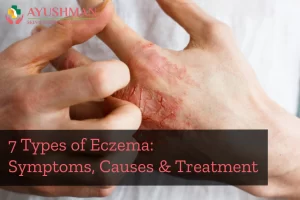Smoking has long been recognized as a major health hazard, linked to a myriad of serious diseases such as cancer, heart disease, and respiratory issues. However, the impact of smoking on one’s physical appearance is often overlooked. Beyond the internal damage, the chemicals in cigarette smoke wreak havoc on your skin, hair, teeth, and nails.
Table of Contents
ToggleWhat is in Cigarette Smoke?
Before we explore its effects, it’s crucial to understand the harmful components found in cigarette smoke. Nicotine, tar, carbon monoxide, and various other chemicals are released when tobacco is burned. These toxic substances not only harm internal organs but also have a profound impact on external features.
How Does Smoking Affect the Body?
Smoking adversely affects virtually every part of the body. It constricts blood vessels, reduces oxygen flow, and hampers collagen production—essential for skin elasticity. Now, let’s zoom in on the specific ways smoking takes a toll on your appearance.
The Impact of Smoking on Your Skin
Premature aging and wrinkles: Smoking accelerates the aging process, leading to the premature development of wrinkles and fine lines. The reduced blood flow and oxygen supply to the skin, coupled with the breakdown of collagen and elastin, contribute to a weathered appearance.
Dull and uneven skin tone: The chemicals in cigarette smoke interfere with the skin’s natural renewal process, resulting in a lackluster complexion. Smokers often experience uneven skin tone and a noticeable reduction in the skin’s radiance.
Dryness and lack of elasticity: Smoking depletes moisture from the skin, leaving it dry and prone to irritation. Additionally, the loss of elasticity contributes to sagging and the formation of deep lines, particularly around the eyes and mouth.
Increased risk of skin cancer: Prolonged exposure to cigarette smoke increases the risk of developing skin cancer. The harmful UV rays from the sun, combined with the carcinogens in smoke, create a potent combination that raises the likelihood of skin malignancies.
How Can Smoking Affect Your Hair, Teeth, and Nails?
Hair loss and thinning: Smoking has been linked to hair loss and thinning, as it hampers blood circulation to the hair follicles. This can result in premature balding and a reduction in overall hair density.
Yellowed teeth and stained gums: The tar and nicotine in cigarette smoke lead to yellowed teeth and stained gums. Over time, this discoloration becomes increasingly noticeable and can contribute to a less vibrant smile.
Brittle nails and discoloration: Smoking weakens the nails, making them more prone to breakage and brittleness. Additionally, exposure to tobacco can cause nails to take on a yellowish hue, detracting from a healthy and groomed appearance.
How Can Smoking Affect Your Appearance?
Bad breath and body odor: The chemicals in cigarettes linger in the mouth and respiratory system, contributing to persistent bad breath. Additionally, the toxins can manifest as an unpleasant body odor, further impacting personal hygiene.
Puffy eyes and dark circles: Smoking can lead to fluid retention and inflammation, resulting in puffy eyes and dark circles. This can make one appear fatigued and aged beyond their years.
Increased risk of wrinkles around the mouth: The repetitive pursing of lips while smoking, combined with the breakdown of collagen, increases the likelihood of developing deep wrinkles around the mouth—a telltale sign of a habitual smoker.
Conclusion
The toll that smoking takes on your appearance is as undeniable as its impact on internal health. Quitting smoking not only improves your overall well-being but also allows you to regain a more youthful and vibrant appearance. Choosing a smoke-free life is an investment in both your health and your lasting, positive self-image.
FAQs
Q: Will my skin improve if I stop smoking?
A: Yes, quitting smoking can lead to significant improvements in your skin’s health and appearance. As you cease exposure to the harmful chemicals in cigarette smoke, blood flow and oxygen levels to the skin increase. This enhanced circulation promotes collagen production and cell regeneration, ultimately reducing wrinkles, restoring elasticity, and giving your complexion a healthier, more youthful glow.
Q: Does smoking make your face puffy?
A: Yes, smoking can contribute to facial puffiness. The harmful substances in cigarette smoke can lead to inflammation and fluid retention, particularly around the eyes and cheeks.
Q: Does smoking make your face darker?
A: While smoking itself doesn’t directly darken the skin, it can contribute to an uneven skin tone and dull complexion. The decreased blood flow and oxygen supply to the skin, coupled with the interference in the skin’s natural renewal process, can result in a lackluster appearance.
Q: Does smoking make your cheeks smaller?
A: Smoking is associated with premature aging and a loss of skin elasticity. Over time, this can contribute to a sagging appearance, including a reduction in cheek volume. Quitting smoking can slow down the aging process, allowing the skin to regain some of its natural elasticity. While it may not reverse all changes, quitting smoking can prevent further loss of cheek volume.







